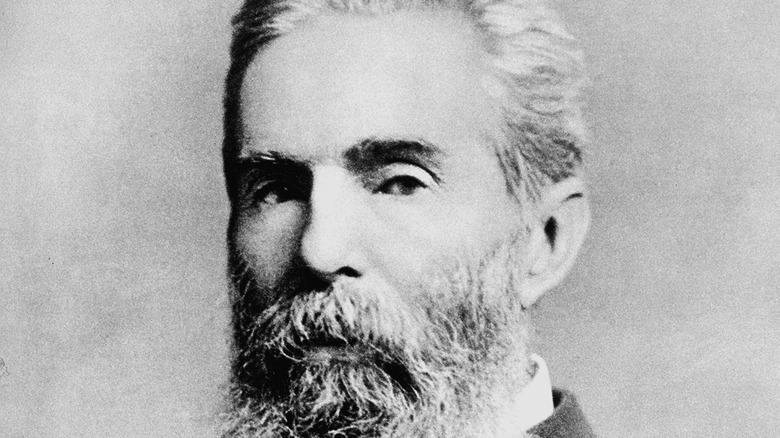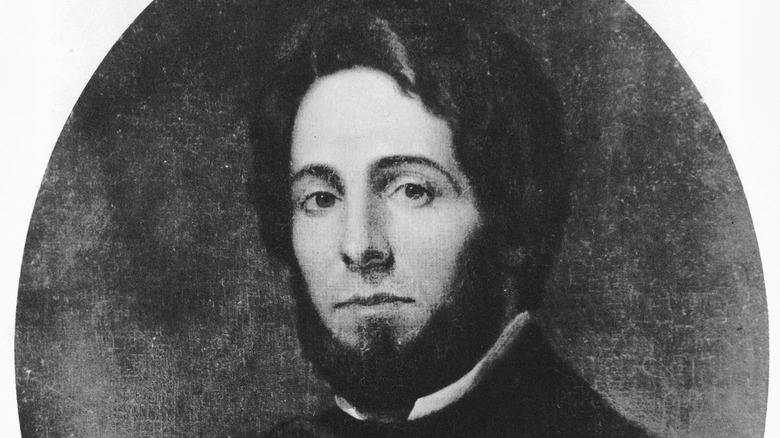The Truth About Herman Melville's Financial Problems
Herman Melville is among the many artists who did not see glory before the grave. By the 1920s, Melville had earned respect and recognition from critics and readers, and his last novel, "Billy Budd, Sailor," was published in 1924, per Biography. But the author had died of a heart attack three decades prior, on September 28, 1891, having abandoned novel-writing long before.
According to American Literature (via JSTOR), Melville left an estimated $13,261.31 estate upon his death and bequeathed it entirely to his wife. When his wife died 15 years later, she left an estimated $170,369.62 in property. Many historians have suggested that Melville's finances were in a more dire state than they were in reality. Even while he was alive, he made an average annual income of $1,600 over a five-year period in his writing career, which made him — per The New Yorker — "one of the best-paid American authors of this era."
Still, Melville's income as a writer was not enough to sustain him for life. In fact, he cited poor pay as the reason why he had turned from writing to a more practical career three decades before his death.
Debts and poor sales led Herman Melville to switch careers
Herman Melville's "Moby Dick" was originally published in October of 1851. According to Mental Floss, the book sold a measly 3,715 copies, earning him $556.37. By that point, Melville already owed his publishers, Harper & Brothers, hundreds of dollars, and his father-in-law thousands, per The New Yorker.
Melville's subsequent novels, including "Pierre; or, The Ambiguities" (1852), "Israel Potter: His Fifty Years of Exile" (1855), and "The Confidence-Man: His Masquerade" (1857), also floundered commercially, per Biography. In the 1860s, Melville gave up on writing novels and took a job as the Deputy Inspector of Customs in the City of New York. According to The New Yorker, he earned four dollars a day, or about $1,200 a year, as a customs inspector, which was far more than his average earnings as a writer. He sustained his customs career for 20 years, while quietly writing poetry in his spare time.
"Dollars damn me," Melville wrote to novelist Nathaniel Hawthorne (via The New Yorker). "What I feel most moved to write, that is banned, — it will not pay. Yet, altogether, write the other way I cannot. So the product is a final hash, and all my books are botches."

